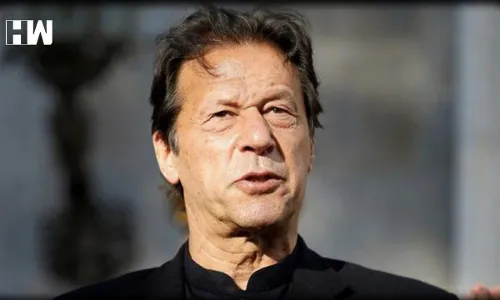Pakistani Prime Minister Imran Khan is facing his hardest challenge since coming to power in 2018, as opposition parties have put their differences aside to vote him out of office in a no-confidence vote. This morning, Parliament is scheduled to begin the legislative process.
Imran Khan battles for political survival as opposition parties claim he has lost the majority in the parliament after defections from the Pakistan Tehreek-e-Insaf (PTI)-led government.
The opposition has called on him to step down ahead of the no-trust motion but Mr Khan has refused. “I will not resign come what may,” he said in a statement from his office issued late Wednesday night. He added that he would not surrender without a fight and questioned why should he quit under pressure from “crooks”.
The National Assembly secretariat on Thursday night issued a 15-point agenda of Friday’s session, which also included the no-confidence motion.
Accusations of mismanagement of the economy, with inflation soaring to double digits and steep price rise, led to widespread dissatisfaction which has now snowballed into a political threat. Political vendetta against opposition leaders, most of who have been jailed at some point, is also one of the reasons for this united, enraged opposition.
Reports say around 20 of Imran Khan’s party members have defected alleging failure to manage inflation and are expected to vote against him. Mr Khan has filed a court petition seeking a lifetime ban on the defectors while also appealing to them to return to the ruling party.
The Pakistani National Assembly has a total strength of 342 members, with the majority mark being 172. The PTI led coalition was formed with the support of 179 members, with Imran Khan’s PTI having 155 members.
Three major allies in the coalition government have indicated that they will also join the opposition in the no-confidence motion. The opposition together commands 163 seats and could easily topple the government if PTI defectors and the ruling government’s coalition allies join the vote against Imran Khan.
No Pakistani Prime Minister has ever completed a full five-year term in office.
The next general elections in the country are scheduled for late 2023 but Interior Minister Sheikh Rasheed Ahmed has hinted at early elections to defuse the confrontation.
Imran Khan has reportedly fallen out with Pakistan’s powerful military which, it is widely believed, had a big role to play in Imran Khan’s rise to power. The military has interfered in civilian politics for decades in the neighbouring country. However, both Mr Khan and the military deny the charge.
As an independent media platform, we do not take advertisements from governments and corporate houses. It is you, our readers, who have supported us on our journey to do honest and unbiased journalism. Please contribute, so that we can continue to do the same in future.

